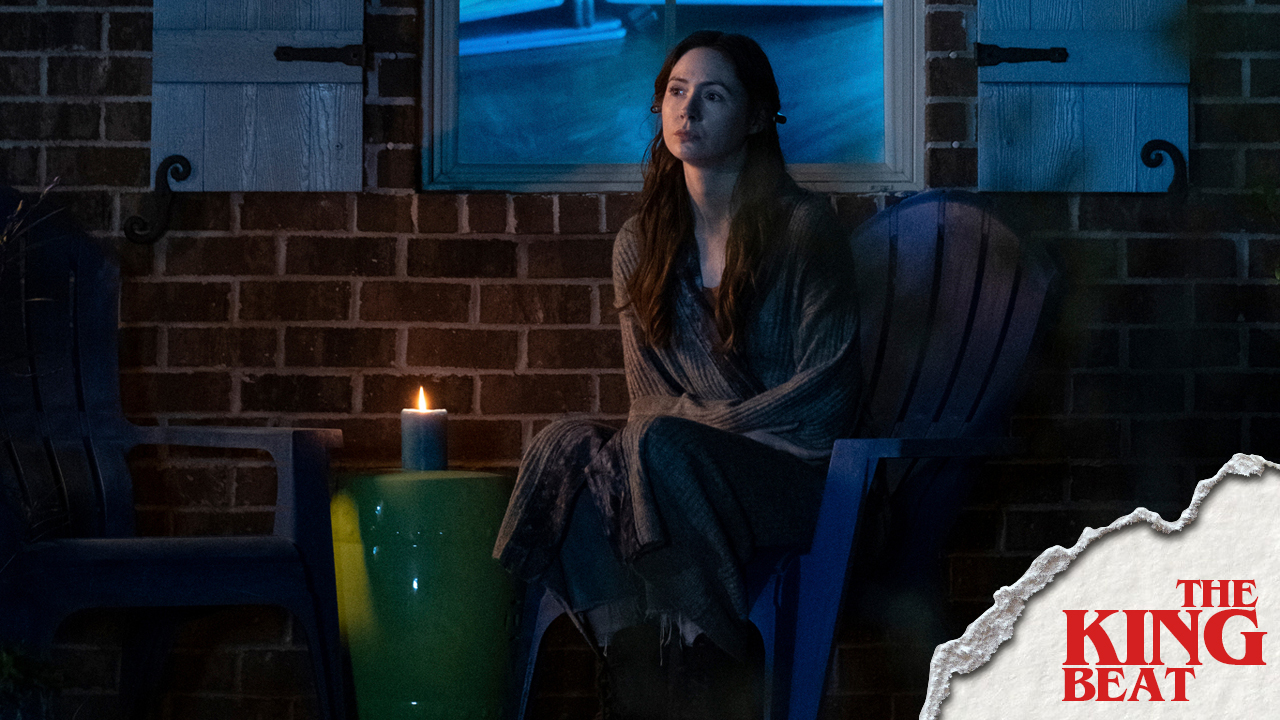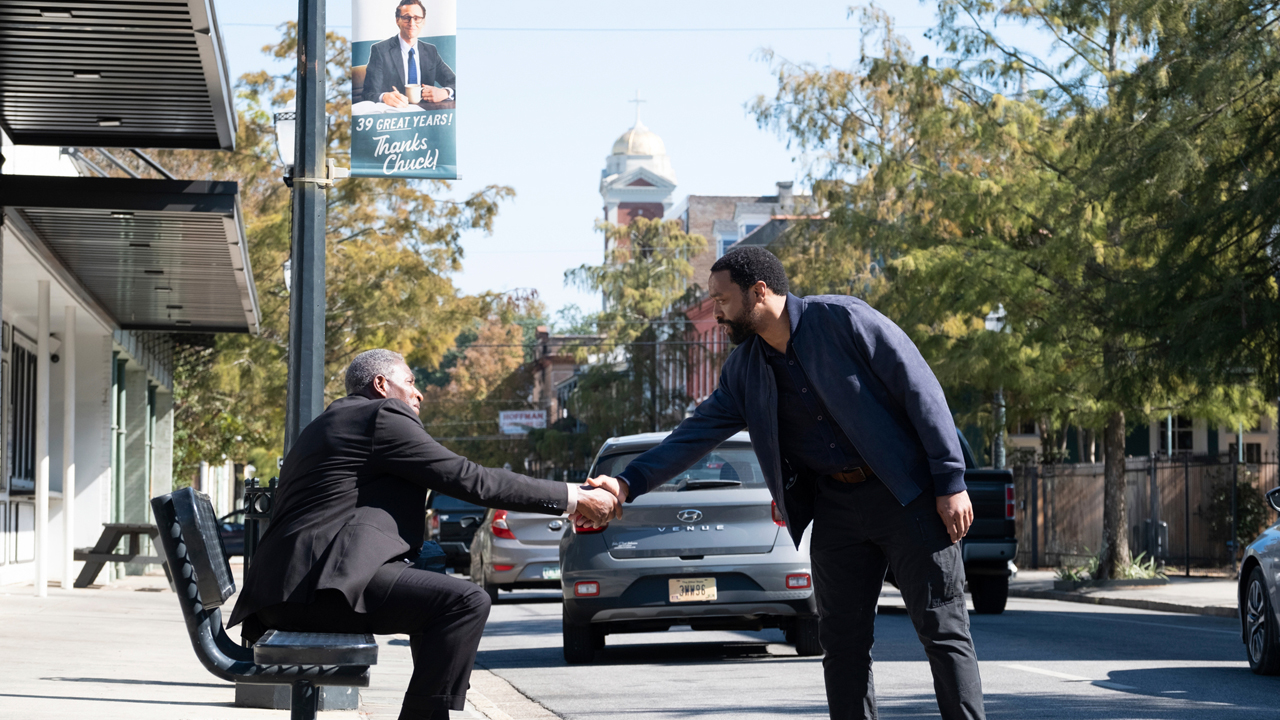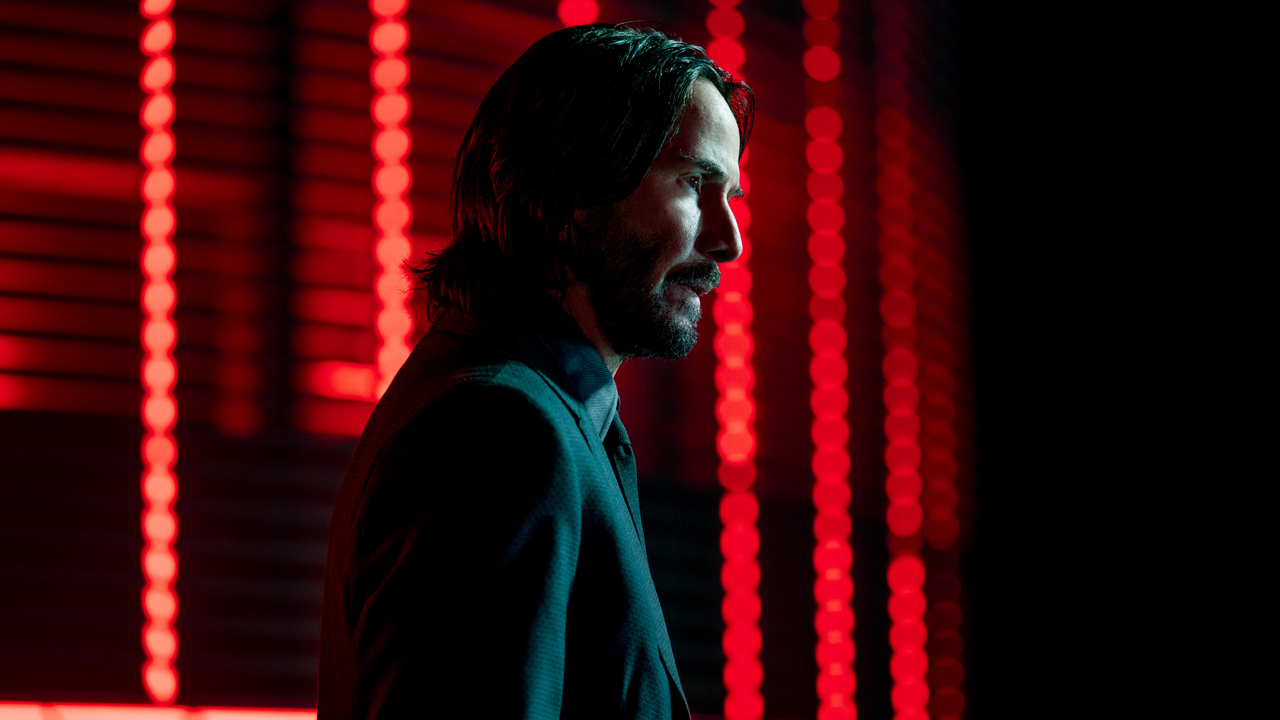In Hostile Times, Mike Flanagan’s Adaptation Of Stephen King’s The Life Of Chuck Reflects How I’ve Grown To Think About Anger
The new Stephen King movie arrives in theaters June 6.

Your Daily Blend of Entertainment News
You are now subscribed
Your newsletter sign-up was successful
In this absolutely magical year for Stephen King adaptations, the next movie set to arrive in theaters is now less than a month away. Constant Readers will have to be patient for Francis Lawrence’s The Long Walk, Edgar Wright’s The Running Man, HBO’s IT: Welcome To Derry and MGM+’s The Institute, which are all premiering in the back half of 2025, but we are now just weeks away from the arrival of Mike Flanagan’s The Life Of Chuck. I had the chance to see it when it premiered last fall at the Toronto International Film Festival, and in meditating upon its upcoming release, I want to recognize how it’s a work that feels very much needed in what are extremely hostile times.
Those thoughts have come together as the lead headline of this week’s edition of The King Beat, but the past seven days have also brought us some interesting insight into the long history of adapting The Long Walk. There’s a whole lot to discuss, so let’s dig in!

The Life Of Chuck Is A Joyful Film That Has Made Me Think About My Relationship With Anger
Before I go any further, I feel like I should address the fact that The Life Of Chuck isn’t really a novella/movie about anger. In fact, while anger is frequently a perfect catalyst for conflict in fiction, there really isn’t all that much of it in this story. And yet despite this absence, it represents how I’ve grown to think about that particular emotion in my adulthood, especially as there seems to be an endlessly increasing amount of it poisoning the world right now.
When I was a kid/adolescent, I got angry a lot. I came by it honestly as they say, my dad having been known to showcase a temper, and while I never expressed it with violence toward others, I had a short fuse and a high capacity for seething and rage. I retain a vivid memory of leaving a little league game: I realized I had misplaced some of my equipment, and I proceeded to punch the ground repeatedly and hard enough to sprain the pinkie-side of my left hand. Part of the reason I remember it so clearly is because it still takes me a little extra effort to fully extend the finger that took most of the brunt.
Maturity helped rid me of some of my anger, but it was through adult experience that I began to really see a different side of it. Without delving into unnecessary details, I had separate incidents of being new levels of pissed off with two of my friends. I was brimming with indignation as I felt used, underappreciated and ignored, and worst of all, I knew that it was intentional. I could only perceive spite and hurt in their actions, and my brain told me that they knew exactly what was going on and what they were doing.
My brain is a fucking idiot. When my huff got extreme enough to motivate confrontation, my feeling in the aftermath was foolishness. While I had been “sure” of a number of things, I was blinded to other possibilities, and there certainly was no ill intent. As we are all guilty of doing, I solely perceived the situation through the narrow filter of my own experience, and I vastly underappreciated the infinite complexity of my friends’ own lives and experiences.
This brings me back to The Life Of Chuck. As noted, it isn’t a story about anger, but it is about the special worlds we each create and inhabit with our own existences. We all live together, but the people we meet, the relationships we forge, the places we see and the things we do all contribute to the unique ways each of us see the world. To paraphrase the quote that Stephen King uses frequently in the novella (and Mike Flanagan likewise uses frequently in the adaptation), we contain multitudes.
Your Daily Blend of Entertainment News
The Life Of Chuck unfurls in reverse chronological order and in three distinct chapters. The first is about the apocalypse. A teacher, played by Chiwetel Ejiofor, navigates a world that is crumbing (in the case of massive sinkholes randomly appearing, quite literally), and he is confounded to see all manner of advertising with the image of a bespectacled man and the message, “39 Great Years! Thanks, Chuck!”
This man is Charles Krantz (Tom Hiddleston), who, as he is dying from a brain tumor at the age of 39, the expansive universe that has been created from his existence is ending.
In the second and third chapters of The Life Of Chuck, we understand how that universe was formed. The former captures a singular experience of the man shortly before the diagnosis that will change his life, as he finds himself caught up in the beat produced by a busker drummer and finds himself captivating an audience as he dances with a lovely stranger (Annalise Basso). In the latter, we witness his coming of age as he finds his passions in life – both thanks to his loving grandparents (Mark Hamill, Mia Sara) and engaged teachers at his school(Kate Siegel, Samantha Sloyan).
The bad news is that none of us can ever fully comprehend the ever-expanding universes that exist within others – even in the closest relationships. What’s absolutely vital, however, is that we all at least recognize that those independent universes exist and don’t solely view reality exclusively from our relatively narrow perspectives.
A true failure to do this has led to an exceptional amount of rage in our world today. Prejudices and biases color all of our discourse, as people are divided into groups instead of being seen as individuals. Resentment can fester when people see what others have and get without understanding what they lack and have had taken from them. An innocuous social media post can be deemed ignorant because it fails to acknowledge an obscure detail. Circumstance is constantly mistaken for intent, and we are all so sure that we know exactly what is going on in the minds of others.
Of course, it needs to be acknowledged that righteous anger is not just a myth. There is no doubt that there are people in the world who act with cruelty in front of mind, and they don’t just fail to understand the wonder of human complexity; they purposefully ignore it. But it’s these individuals who need to be the target of your rage, instead of the delivery driver who dropped your package at your front door instead of placing it. Or the waiter who takes an extra minute to bring you your food. Or the customer service representative who is only given a limited number of options to try and assist you with your problem. They are all just living their own boundlessly complicated, messy lives, just like you.
It shouldn’t take seeing a movie to understand this important aspect of existence, but if that’s where we are at, then The Life Of Chuck is definitely a perfect film for our current moment – and you’ll be able to catch it in limited release starting June 6 before it expands to theaters nationwide on June 13.
The Long Walk Director Reveals The 2025 Movie Is His Second Attempt At Making The Stephen King Adaptation
As far as getting adapted is concerned, The Long Walk has had more false starts than most Stephen King books. Following the novel’s original publication in 1979 (sporting King’s pseudonym Richard Bachman), many filmmakers tried to bring the dystopian horror to the big screen, but their efforts never resulted in a feature that got the green light to go into production. Director Francis Lawrence has succeeded where the likes of George A. Romero, Frank Darabont and André Øvredal failed – but what you probably don’t know is that Lawrence’s film is technically his second go-around with the project.
In advance of The Long Walk trailer that arrived online yesterday (which you can watch above), Vanity Fair published a preview of the upcoming Stephen King movie, and it includes a great bit of trivia about the book’s time in Hollywood’s notorious development hell. Long before Francis Lawrence teamed up with screenwriter J.T. Mollner to make the film that we will be arriving in theaters this fall, the director previously tried to make an adaptation with screenwriter/producer Akiva Goldsman. It didn’t work out, but not because of his vision or studios being wary of the source material’s extreme grimness. Said Lawrence,
It crossed my desk in 2006, around the time I was making I Am Legend. The guy who wrote I Am Legend was one of the producers—Akiva Goldsman, who’s now a friend of mine. He gave me a copy. We were trying to find something to do together, and I totally fell in love with it. We went to get the rights, and I think it might have been Frank Darabont who had nabbed them right before we could. I fell in love with it, but we couldn’t do it.
Francis Lawrence went on to make a very different kind of movie as his follow-up to I Am Legend – the circus-centric romantic drama Water For Elephants – but has earned both acclaim and fans for his work in dystopian fiction, directing the last four movies in the Hunger Games franchise. One could make the argument that his developed genre familiarity alongside his positive working relationship with Lionsgate is what allowed things to properly click into place and get an adaptation of The Long Walk made.
Featuring a cast including Cooper Hoffman, David Jonsson, Judy Greer and Mark Hamill (as the villainous Major), the titular competition in The Long Walk sees a collection of teenage boys participate in what is essentially a death march. The competitors have to maintain a three-mile-per-hour pace in the last-man-standing contest, and slowing down or stopping means receiving a warning. If they receive three warnings within an hour, the consequence is a bullet to the head. The trailer makes the film look just as grim and powerful as the Stephen King novel on which it’s based, and I’m terrifically excited to see it when it arrives in theaters this September.
That wraps up this week’s edition of The King Beat, but I’ll be back here on CinemaBlend next Thursday with my latest roundup of big news from the world of Stephen King. Meanwhile, you can explore the long history of adaptations in both film and television with my series Adapting Stephen King.

Eric Eisenberg is the Assistant Managing Editor at CinemaBlend. After graduating Boston University and earning a bachelor’s degree in journalism, he took a part-time job as a staff writer for CinemaBlend, and after six months was offered the opportunity to move to Los Angeles and take on a newly created West Coast Editor position. Over a decade later, he's continuing to advance his interests and expertise. In addition to conducting filmmaker interviews and contributing to the news and feature content of the site, Eric also oversees the Movie Reviews section, writes the the weekend box office report (published Sundays), and is the site's resident Stephen King expert. He has two King-related columns.
You must confirm your public display name before commenting
Please logout and then login again, you will then be prompted to enter your display name.
